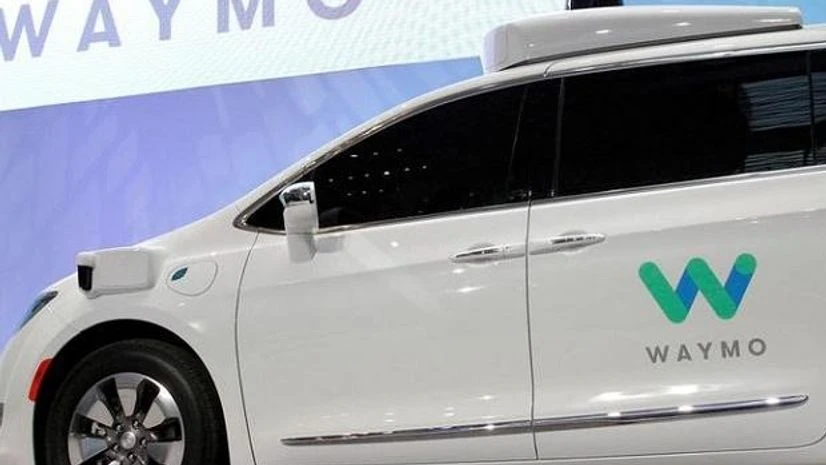Uber was either a cheating competitor willing to break the law to win the race to develop self-driving cars, or the victim of an unproven conspiracy theory stitched together by its main rival, Waymo, jurors heard in opening statements of a trade secrets trial on Monday.
The first salvos were delivered to a 10-person jury in San Francisco federal court in a civil lawsuit that could help determine who emerges in the forefront of the autonomous car business nearly a year after Alphabet Inc's self-driving car unit Waymo sued rival Uber Technologies Inc.
The case hinges on whether ride-hailing firm Uber used apparent trade secrets to advance its autonomous vehicle program. Waymo's allegation is that its former engineer Anthony Levandowski downloaded more than 14,000 confidential files in December 2015 containing designs for autonomous vehicles before going to work for Uber and leading its self-driving car unit in 2016.
"Waymo wants you to believe that Anthony Levandowski got together with Uber as part of some grand conspiracy to cheat and take trade secrets," Uber attorney Bill Carmody said in his opening statement to the jury. "But like most conspiracy stories it just doesn't make sense when you get the whole story."
Waymo and Uber are part of a crowded field of automakers and technology companies competing to build fleets of self-driving cars that could transform urban transportation systems.
Also Read
Waymo attorney Charles Verhoeven told the jury that the competitive pressures were so great to develop the cars that the then-Chief Executive of Uber, Travis Kalanick, decided that "winning was more important than obeying the law."
"We're bringing this case because Uber is cheating. They took our technology ... to win this race at all costs," Verhoeven said.
Waymo has estimated damages in the case at about $1.9 billion. Uber rejects the financial damages claim.
Uber attorney Carmody said the "elephant in the courtroom" was that, despite the downloads by Levandowski, Google's proprietary information never made it to Uber and into its self-driving technology.
"There is no connection whatsoever between any files he downloaded ... and what's in here," Carmody said, pointing to an Uber-designed Lidar sensor sitting in front of him, a light-based sensor that is crucial to autonomous driving and central to the case.
"There's not a single piece of Google proprietary information at Uber," he added. "Nothing, zero, period."
After what is expected to be two weeks of testimony, the jury will have to decide whether the eight apparent trade secrets were indeed such, and not common knowledge, and whether Uber improperly acquired them, used them and benefited from them.
Levandowski, regarded as a visionary in autonomous technology, is not a defendant in the case but is on Waymo's witness list. Levandowski was fired from Uber in May 2017 because the company said he refused to cooperate with Uber in the Waymo lawsuit and did not hand over information requested of him in the case.
Waymo CEO testifies
Waymo sought to put a reassuring face on the company's self-driving efforts, calling as its first witness Chief Executive Officer John Krafcik, who described for the jury the first car he bought, his two children and how he found Waymo's mission to reduce driving fatalities "inspiring."
Asked why Waymo sued Uber, Krafcik responded, "We believe in fair competition."
"We believe in accelerating the technology that is going to save a lot of lives in this world. What we came to find is aspects of our technology were taken from us in an unfair fashion and it was important for us to correct that," Krafcik said.
Under cross-examination, however, Carmody tried to show that, rather than leading the pack in autonomous driving, behind the scenes Waymo was struggling to keep talent, citing emails between Waymo executives expressing concerns about the exodus of top engineers for rivals.
Carmody showed to the jury one email sent by Levandowski to Google co-founder Larry Page on Jan. 9, 2016, a few weeks after downloading the documents. "Chauffeur is broken. We are losing our tech advantage fast," Levandowski wrote, referring to a previous name of the project.
Uber has co-founder and former CEO Kalanick at the top of its witness list. There are a total of 99 potential witnesses between the two companies, according to court documents, including Google co-founders Page and Sergey Brin, Benchmark venture capitalist and Uber investor Bill Gurley and Alphabet executive David Drummond.
Waymo lawyer Verhoeven, ending the day, walked CEO Krafcik through the list of departed engineers who went to form their own companies or join others, asking him whether Waymo had sued them after their departure.
"We did not," replied Krafcik.

)
